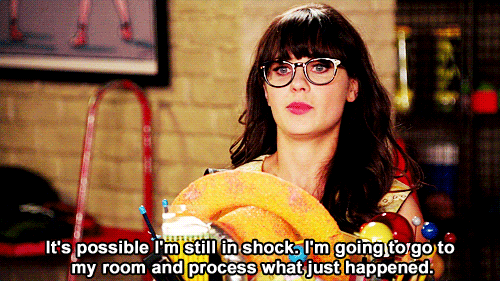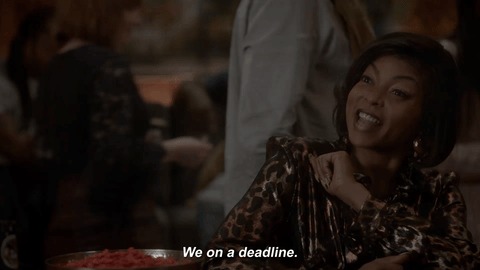
In our 20s, everything seems so stressful since our lives are most likely full of deadlines, exams, and responsibilities; not to mention our parents and friends who give us the pressure to meet their expectations. Based on Health Psychology by Shelley E. Taylor, stress results from the process of appraising events (as harmful, threatening, or challenging), of assessing potential responses and of responding to those events.
Therefore, before you get stressed out and respond to it, you need to calm down and assess your own situation first. Are those situations worth the stress?
Actually, most events themselves are not inherently stressful; whether those events are stressful or not depends on how you perceive it. Then, what makes some events become so stressful for you? In this term, stressful events are usually called stressors. According to Shelley, there are four characteristics of events that potentially be your stressors:
1. When you experience negative events.

It is totally normal for you to say that you are stressed because you are trying to get a job, failing to reach your life goals, or losing your loved ones–those are called negative events. Not only that, those events will make you give extra work and pressure, but those events are also having implication for your self-concept–in which it’s producing the loss of self-esteem and the destruction of your own sense of identity.
Dealing with some negative events might be hard for some people. If this applies to you, please don’t be too hard on yourself. Find what feels good for you to deal with the pain: try to connect with your loved ones, exercise might help, and don’t spend too long listening to those sad songs. You need to find your strengths once again.
2. When you can’t predict uncontrollable events.

People tend to perceive an uncontrollable event as a stressor. When people feel that they can predict, modify, and influence a circumstance, they experience it as less stressful. Moreover, the feelings of control not only mute the subjective experience of stress, but also influence the biochemical reactions to it. Have you ever done your best for your assignments, but suddenly, your laptop was broken so you have to start your tasks all over again? That was one of the normal examples for you to feel the stress.
Having an inner peace is one of the keys to cope with this kind of stressor, since all you need to do is let go of your disappointments regarding the things that didn’t happen as planned. Meditation or practicing mindfulness might help you to cope (I highly recommend Yoga!).
3. When you don’t understand the ambiguous events.

Ambiguous events are typically perceived as more stressful than the clear-cut events because when a potential stressor is ambiguous, a person cannot take action. For example, when your loved ones were mad at you without giving any explanations, you will devote your energy to understand their anger. The multi-interpretations of their anger is potential to be one of the stressors that you will encounter.
One of the ways to cope with this kind of stressor is to control your emotions first before confronting the ambiguous events. Everybody has their own ways of controlling their emotions, but one of the most effective ways is through expressive writing. A study found that expressive writing, or putting your thoughts, emotions, and experiences into words, can reduce the stress and anxiety.
4. When you have (too) many things to do.

People who have too many tasks in their lives report higher levels of stress than those who have fewer tasks. The perception that one is responsible for doing too much in a short time is a circumstance that can be stressful for some people.
One of the ways to cope with this kind of stressor is to take a break from your routines or tasks. Remember that your life does not always revolve around your responsibilities; do your hobbies and have quality time with your loved ones once in a while it will help you to release the stress.
It is important to assess your circumstances first before you claim that you are stressed. Assessing your circumstances will help you to think clearly about solving the problems instead of drowning in your own desperation.
At the end of the day, everyone is struggling with their own battles, and if they can cope with the stress; you can do it too.
Featured image via Unsplash


















